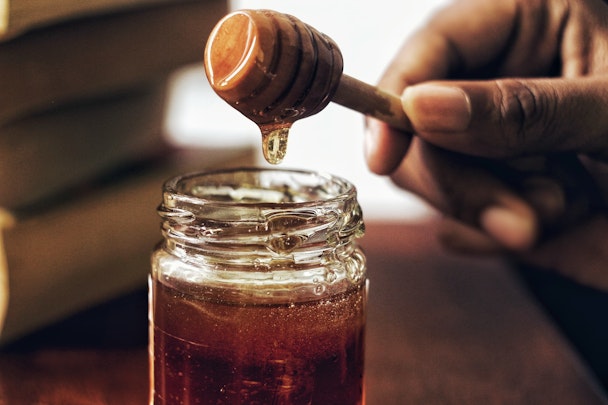Why are the Indian honey marketers in a soup?
The recent controversy among the Indian honey brands is reminiscent of the cola wars that used to be a nightmare for the brands caught in the midst of it. The current debate is around the prevalent sugar content and purity standards found in some of the leading honey brands. The honey marketers have got in a huddle, ad campaigns are being released to clear the air and complaints and counterclaims are being made.

Honey in a soup?
The Drum gets Gurugram-based business strategist Lloyd Mathias to demystify the ongoing debate, its implications to the category and the lessons for marketers. Mathias has been the former Asia-Pacific marketing head for HP, CMO for Motorola India & South Asia and executive VP marketing of PepsiCo India.
On December 2nd, the Centre for Science and Environment (CSE) a public interest research and advocacy organisation based in New Delhi released a report that claimed major brands of honey including Dabur, Patanjali and Zandu are selling honey adulterated with sugar syrup. These brands of honey, despite the addition of sugar syrup, do manage to clear tests used to detect adulterated honey by Indian food regulatory authorities.
Responding speedily to these allegations, spokespersons from the companies denied that their honey products were adulterated and pointed out that they meet all the regulatory requirements laid down by the Food Safety and Standards Authority of India (FSSAI).
According to CSE’s director general Sunita Narain, the organisation launched the investigation when beekeepers in India reported reduced profits despite a spike in honey sales and consumption during the Covid-19 pandemic, driven by people’s attempts to boost immunity.
“It is a food fraud more nefarious and more sophisticated than what we found in our 2003 and 2006 investigations into soft drinks; more damaging to our health than perhaps anything that we have found till now -- keeping in mind the fact that we are still fighting against a killer Covid-19 pandemic with our backs to the wall,” Narain said.
CSE researchers selected 13 brands of processed and raw honey being sold in India. These samples were tested at the Centre for Analysis and Learning in Livestock and Food (CALF) at the National Dairy Development Board (NDDB) in Gujarat. While 10 brands failed the test, Saffola, Markfed Sohna and Nature’s Nectar were the brands that passed all tests.
Is it a brand war in the making?
What started off as a category issue rapidly deteriorated into a slugfest - one between the CSE and key brands but the other between some of the brands and CSE. Dabur was quick to put out ads in major newspapers claiming their honey was 100% pure and shared an independent test report from a lab in Germany, showing that Dabur Honey passes the NMR test.
“The recent reports seem motivated and aimed at maligning our brand. We assure our consumers that Dabur Honey is 100% Pure. It is 100% indigenous, collected naturally from Indian sources and packed with no added sugar or other adulterants,” the spokesperson said. Patanjali’s MD Acharya Balkrishna, claimed that the CSE report was “an attempt to lower the market share of Indian honey in international trade”.
ASCI asked to step in
As Marico’s Saffola brand of honey had cleared the test, they were quick to release adds claiming purity. Saffola and Dabur were already on the warpath when Marico filed a complaint on October 1 before the ASCI, against the ‘NMR tested pure honey’ claim by Dabur.
Dabur and Marico are on the warpath over each other’s claims about their honey brands, taking their dispute to India’s advertising industry watchdog, the Advertising Standards Council of India (ASCI).
What could it mean to the category?
All these claims and counter claims are leaving consumers confused. More so when a lot of consumers have adopted usage of honey as an immunity booster during the pandemic. While issues like these have hit categories in the past - the cola category in 2003 & 2006, the bottled water category in 2014 and the controversy that hit Nestle’s Maggi noodles in 2015, there are key lessons for businesses on handling a crisis.
What are the lessons for honey marketers?
Building trust is paramount
It is critial to build trust in the brand specifically in a category that has strong health connotations. For makers of honey there is a need for a system of traceability and transparency across the honey supply chain. This needs to be communicated clearly to consumers using social media and packaging. Just assuming the larger brand will ensure trust may not cut it.
Don't shoot the messenger
Avoid shooting the messenger. While large consumer packaged goods companies may have built their reputation over the years, taking pot shots at an independent and credible organisation like the CSE does not help. It would be best to have the companies’ food technologists meet with and understand the testing protocols an honestly share their procurement methodologies.
Reassure the consumers
It is critical to communicate clearly to reassure consumers and indeed demonstrate how the brands will ensure that their honey – even while meeting FSSAI standards – will do their utmost to ensure purity. The brands need to set up lines of communication for clarifying to consumers - be it through a customer services helpline or posting FAQs on its website, besides presence on social media platforms like Facebook and Twitter, where representatives can answer questions of customers. Social media thrives when you embrace authenticity. Be honest and sincere.
Lloyd Mathias is a business strategist and a former marketer with HP, Motorola and PepsiCo.
